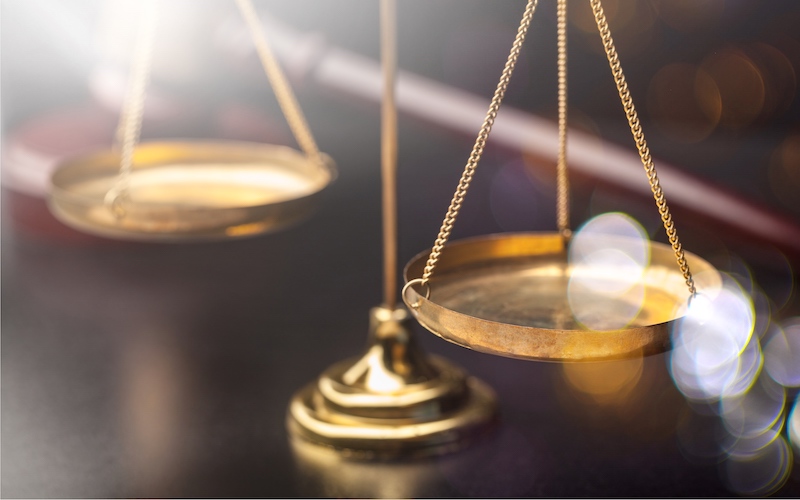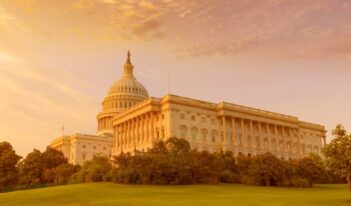
President Trump contravenes fundamental fairness by exerting political pressure over prosecutors.
Members of the U.S. House of Representatives heard testimony last week from two current U.S. Department of Justice prosecutors with a disturbing story to tell. They alleged that high-level political pressure has led federal prosecutors to engage in selective antitrust investigations and to move for leniency for Roger Stone, a longtime friend and aide of President Donald J. Trump.
These latest allegations fit an unsettling pattern. Throughout his time in the White House, President Trump has tried to put pressure on both prosecutors and judges in criminal cases involving individuals close to him.
In fact, in February, President Trump even proclaimed that he possesses a legal right to interfere in prosecutions. Not only does he lack such a right under federal law, he actually has a legal duty to refrain from getting involved in individual prosecutorial matters.
This duty stems from his oath of office and his responsibility, under Article II of the U.S. Constitution, to “take care that the laws be faithfully executed.” Among the laws he must ensure are faithfully executed are those aimed at protecting the legal system’s fundamental fairness.
The Fifth Amendment provides that no person shall be denied liberty or property “without due process of law.” This Due Process Clause found its way into the Bill of Rights because the framers had fresh memories of British “abuses and usurpations” from before the American Revolution.
Many of those royal abuses involved process. The founders complained in the Declaration of Independence that the king of England had, among other things, “obstructed the administration of justice,” “made judges dependent on his will alone,” put together a “mock trial” to acquit his troops of crimes, and restricted jury trials.
The U.S. Supreme Court has long recognized that the Due Process Clause imposes a duty of basic procedural fairness. As the Court explained in Hebert v. Louisiana in 1926, fairness encompasses those “fundamental principles of liberty and justice which lie at the base of all our civil and political institutions.”
Since Herbert, the Court has held many times that fundamental fairness specifically requires that criminal cases be decided by neutral, impartial adjudicators—ones free from improper pressures and influence.
Fairness also means that attorneys who prosecute crimes must follow their oaths to act “uprightly.” Although prosecutors can vigorously pursue their cases, the Supreme Court has made clear that they have a “duty to refrain from improper methods”—so do Presidents and their Attorneys General.
In another 1926 decision, the Supreme Court upheld presidential authority to exert control over executive branch officials. The opinion in that case, Myers v. United States, reads as a paean of presidential power. But even so, the Court still acknowledged that fairness means that “the President cannot in a particular case” seek to “influence or control” those executive officials who possess “duties of a quasi-judicial character.” This description applies to federal prosecutors.
Yes, prosecutors work in the Justice Department. They are charged by statute with the sole power, under the Attorney General’s direction, to conduct litigation on behalf of the United States. But they take an oath to serve as officers of the court. They possess a “unique responsibility” to pursue justice, as the Supreme Court stated in the 1987 case of Young v. United States.
Writing still decades earlier in Berger v. United States, the Court explained that “the United States Attorney is the representative…of a sovereignty whose obligation to govern impartially is as compelling as its obligation to govern at all.”
President Trump has the constitutional authority to fire U.S. Attorneys if he wishes, as he reportedly did a little over a week ago in removing the chief prosecutor heading the U.S. Attorney’s office in Manhattan. But he contravenes the Fifth Amendment if he seeks to influence prosecutors or judges in particular cases, because then they can no longer hope to “govern impartially.”
The President also violates the federal obstruction of justice statute if he deploys his removal authority for the purpose of interfering with investigations involving his aides or business entities.
Putting pressure on prosecutors involved in individual cases not only violates federal law and fundamental fairness, it also recklessly undermines the legal system’s legitimacy.
The U.S. legal system is not perfect, but it depends vitally on public trust and acceptance. That is why Chief Justice John Roberts has long worried about what he has called the courts’ “bedrock principle of legitimacy.” It is undoubtedly why he has responded in the past to President Trump’s attacks on judges by explaining that “we do not have Obama judges or Trump judges, Bush judges or Clinton judges.”
The Supreme Court made explicit, in the 1954 case of Offutt v. United States, that “justice must satisfy the appearance of justice.” This means that the President and Attorney General have an obligation even more demanding than ensuring that the legal system is actually fair. They must also go out of their way to avoid even the appearance of acting unfairly and corruptly.




